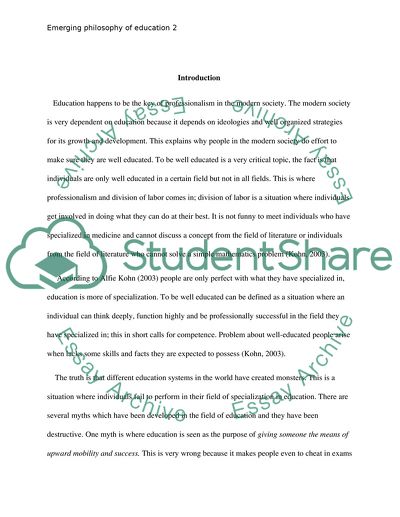Cite this document
(“What Does It Mean to Be Well Educated Essay Example | Topics and Well Written Essays - 2750 words”, n.d.)
What Does It Mean to Be Well Educated Essay Example | Topics and Well Written Essays - 2750 words. Retrieved from https://studentshare.org/philosophy/1623763-what-does-it-mean-to-be-well-educatedsituating-my-emerging-philosophy-education-with-respect-to-the-philosophy-of-the-qubec-education-policy
What Does It Mean to Be Well Educated Essay Example | Topics and Well Written Essays - 2750 words. Retrieved from https://studentshare.org/philosophy/1623763-what-does-it-mean-to-be-well-educatedsituating-my-emerging-philosophy-education-with-respect-to-the-philosophy-of-the-qubec-education-policy
(What Does It Mean to Be Well Educated Essay Example | Topics and Well Written Essays - 2750 Words)
What Does It Mean to Be Well Educated Essay Example | Topics and Well Written Essays - 2750 Words. https://studentshare.org/philosophy/1623763-what-does-it-mean-to-be-well-educatedsituating-my-emerging-philosophy-education-with-respect-to-the-philosophy-of-the-qubec-education-policy.
What Does It Mean to Be Well Educated Essay Example | Topics and Well Written Essays - 2750 Words. https://studentshare.org/philosophy/1623763-what-does-it-mean-to-be-well-educatedsituating-my-emerging-philosophy-education-with-respect-to-the-philosophy-of-the-qubec-education-policy.
“What Does It Mean to Be Well Educated Essay Example | Topics and Well Written Essays - 2750 Words”, n.d. https://studentshare.org/philosophy/1623763-what-does-it-mean-to-be-well-educatedsituating-my-emerging-philosophy-education-with-respect-to-the-philosophy-of-the-qubec-education-policy.


